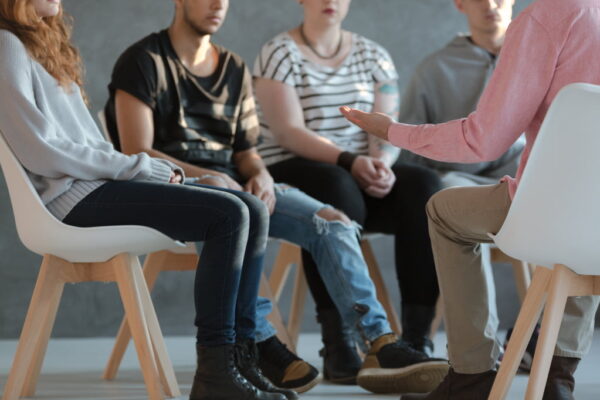
The majority of treatment for drug and alcohol problems is outpatient. Trying to achieve abstinence can be tough and some evidence suggests it is more likely to be the goal of clients than the aspiration of professionals for their clients. How well do clients do?
This study by Gerald Cochrane and colleagues from New York looked at those clients maintaining abstinence in early treatment and compared them to those who found it harder. They looked at big numbers (almost 500 patients) to see what was going on.
The folk who tested negative for drugs early on didn’t seem to have worse drug problems, but they did have better mental and physical health and they were less likely to use more than one drug. The thing that caught my attention was that the patients evidencing abstinence also had much higher attendance rates at 12-step mutual aid groups.
They reported:
“a striking behavioral difference among the drug positive versus -negative samples in their utilization of 12-step programs in the 90 days prior to baseline assessment. Twelve-step attendance was endorsed by 69% who were abstinent from alcohol at baseline, compared to 40% of those reporting alcohol use in the past 7 days… Among cocaine/stimulant users, 74% of those testing negative at baseline reported 12-step attendance (compared to 49% of those testing positive).”
The authors conclude: “This study provides new data about the resilience of those who test drug-negative early in treatment by showing that many participants are already attending 12-step programming prior to treatment entry, especially for primary alcohol and stimulant users. In specific terms, a substantial percentage of alcohol (69%) and stimulant (74%) abusers who had stopped using their primary drug by the early treatment assessment reported recent involvement in 12-step programs.
And it looked like starting to go to meetings before treatment began was associated with better outcomes (my emphasis):
Mean days of 12-step program attendance in the past 90 days among negative stimulant and alcohol users suggests that self-help treatment may have been underway for some time before the formal treatment program had begun. Such proactive behavior represents an important strength that these individuals bring to the current treatment episode.”
There are questions around whether more resilient people choose to go to mutual aid or whether mutual aid makes them more resilient, but if we look at the growing research on the benefits of developing healthy social networks, then even if the former is true, the latter (going to mutual aid makes you more resilient) is also likely to be true, as this study says, and ought to be encouraged at all points on the recovery pathway as part of the process of building recovery capital.
Although this study is about 12-step mutual aid, we can make a reasonable assumption that it might also apply to SMART or other mutual aid groups (or indeed for those who attend more than one type) as the emerging evidence suggests.
This study found that early abstinence ‘is common among substance users entering treatment with a range of primary substances of abuse including alcohol, marijuana, cocaine/stimulants, and opioids.’ We have evidence from elsewhere that longer term sobriety and improved quality of life are associated with continuing mutual aid attendance.
There are three challenges for treatment services and the professionals who work in them around this research. The first is that not every service has mutual aid on its radar. Even now with increasing evidence, there is still not enough awareness of its value. The second is that there is still some prejudice against 12-step groups. You don’t have to look too far to find it. And the third is that while the importance of mutual aid might be recognised in an increasing number of places, we could be better at building bridges from treatment to mutual aid.
Note: this is a lightly edited version of a previously published blog.
Photo credit: istockphoto.com/KatarzynaBialasiewicz (under license).
